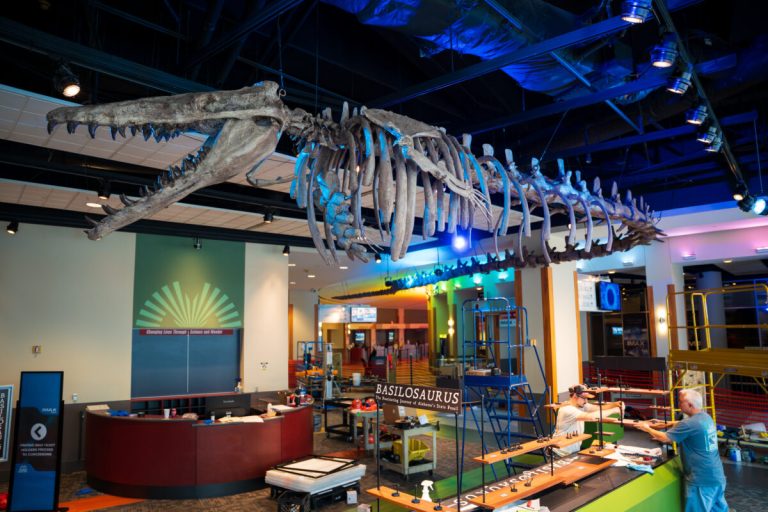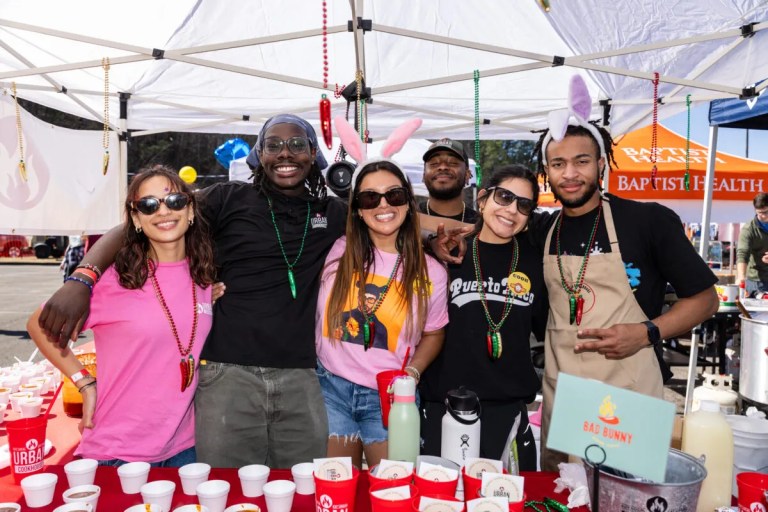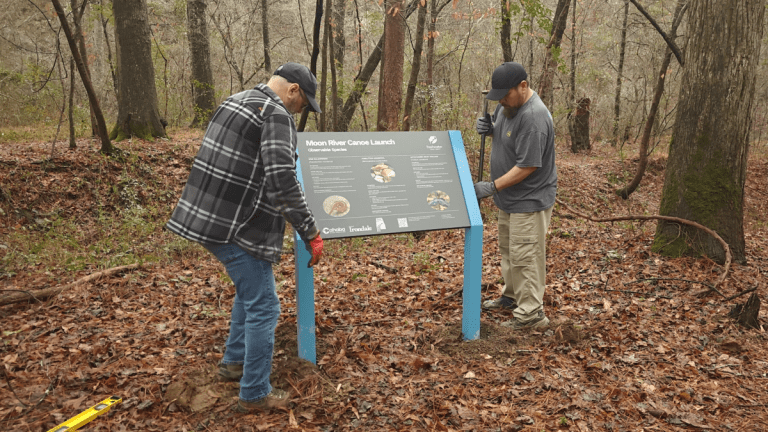4 major ways COVID-19 is impacting Hispanics in Birmingham—plus 11 places to get + give help today
Reading time: 6 minutes

For the over 200,000 Alabama residents who, according to the 2018 American Community Survey, speak a language other than English in their homes, COVID-19 hit like a night-time tornado with no siren. We talked to leaders in Birmingham’s Hispanic community about the challenges they are facing, plus how to get and give help.

Who I spoke with:
- Carlos Alemán: Deputy Director of ¡HICA! (the Hispanic Interest Coalition of Alabama)
- Jean Hernandez: the Latinx Outreach Coordinator at AIDS Alabama, and head of the Alabama Latino AIDS Coalition
The problems + where to get help
“It’s a beautiful thing when we face pandemics or difficult times like storms, the community comes together. We’ve seen this in Birmingham and in other places in the country.”
Jean Hernandez, Alabama Latino AIDS Coalition
1. COVID-19 rates in the Hispanic community are astronomical

“We are seeing astronomical rates of positive tests,” said Alemán. At community testing events such as a recent one at Mi Pueblo, they’ve been seeing 25-30% positive rates.
Hispanics are only 4-5% of the population in Alabama, but by June, they accounted for 10% of positive COVID-19 cases. In July, this number fell to 7% of the population, but Alemán pointed out that this rate is still double that of the population as a whole.
Get help

Nonprofits have partnered with UAB and others to have community testing sites at places like ¡HICA!, churches, Community of Hope Health Clinic in Shelby County and at Mi Pueblo.
2. Lack of COVID-19 information in Spanish

Lack of information in Spanish was a huge problem early on in the pandemic. A number of organizations advocated successfully to change this. Now, when information isn’t readily available in Spanish, organizations are quick to translate it for the community.
Get help in Spanish
- Call 1-800-548-2546 about testing and select Spanish. Ask questions and make an appointment—no health insurance required.
- Call 1-844-AYUDA-AL for help with anything COVID-19 related, including healthcare, rent, utilities, food, immigration assistance, domestic violence, etc.
- Text BHMCOVID19 to 888-777 to receive texts in Spanish.
- Visit the Jefferson County Unified Command Hub in Spanish for COVID-19 information.
3. High COVID-19 rates + vulnerability to exposure in Greater Birmingham’s Hispanic community

“We continue to be concerned that the community is extremely vulnerable to the pandemic. We are trying to do our best to educate people—we encourage them to wash their hands, wear masks, but people have very little recourse.
They have to go to work—a lot of folks work in the service industry or in poultry processing plants. If they don’t go, they don’t eat—it’s an impossible situation.”
Carlos Alemán
How you can help:
Aleman encourages people to contact their elected officials to let them know relief for immigrant communities during this public health crisis is essential.
Here’s why: people can’t say home if they are sick without the resources and support to do so. If they can’t stay home when they’re infected, they’re going to spread the virus to others.
4. Few economic resources + food insecurity

- Undocumented people were not eligible for the $1200 stimulus checks.
- Many are not able to get unemployment for COVID-related job-losses.
- Much of the community is ineligible for economic relief from city, state or national programs which require citizenship and a social security number.
- If you can’t work, you can’t buy food. If you can’t buy food, you can’t feed your family.
Get help:
- Adelante Workers Center: worker fund. Website | Twitter
- AIDS Alabama: Emergency assistance, rapid rehousing for young people 19 to 24 years old. Spanish-speaking hotline: 205-788-8038 + social workers who can help.
- The Alabama Coalition for Immigrant Justice (ACIJ): the ACIJ Community Aid Fund supports immigrants who are struggling financially during COVID-19 and do not qualify for unemployment or federal stimulus benefits. 1-844-AYUDA-AL | Website | COVID-19 resources in Spanish | English | Twitter
- Alabama Latino AIDS Coalition: while their priority is people living with HIV, they help people throughout the community. Contact Jean Hernandez at 205-918-8190 or Email | Facebook
- Purchase cleaning supplies, masks, hand sanitizers, etc.
- Legal Services of Alabama provides free legal clinics—domestic violence, child support or other legal needs.
- Free mental health through AIDS Alabama’s Living Well Clinic— no health insurance needed, with psychiatrists, therapists, interpreters, etc. Call AIDS Alabama’s Spanish-speaking hotline (above) for more information.
- ¡HICA!: a $150,000 emergency assistance fund to support people having trouble paying rent and utilities. Call 205-942-5505 | Recursos / Resources | Facebook | Twitter
- La Casita—Guadalupan Multicultural Services: helping rural communities with food + run a shelter for women experiencing domestic violence. Website | Facebook
- YMCA: food distribution. See graphic above for details.
To help the Latinx community in and around Birmingham:
Hernandez and Alemán said monetary donations and language assistance are critical.
- Adelante Alabama: Donate | Get Involved | Instagram | Twitter
- AIDS Alabama: Donate | Get Involved | Instagram | Twitter
- Alabama Coalition for Immigrant Justice: Donate | Get Involved | Twitter
- Alabama Latino AIDS Coalition: Donate here—choose Alabama Latino Access Center in the designation selection | Contact Jean Hernandez at 205.918.8190 or Email | Facebook
- ¡HICA!: Donate | Get Involved | Twitter
Spanish speakers: help with translation and interpretation, plus communication around testing.
Email for volunteer opportunities in Jefferson County with immigrant communities
“Little by little, if everybody does something, it will mean so much for a lot of people who don’t have anything. Just today I had someone crying, saying ‘thank you—I don’t know what I’m going to do. How am I going to pay my bills—rent, water and power?’ This is getting real for a lot of people.
We all have to come together as a union—together, we can beat this.”
Jean Hernandez



